
-
-
-
Advance your career
In 3-9 months, gain the skills to break into a new career or take your career to the next level.
10th
View allADVANCED MANAGEMENT PROGRAMME (MANUFACTURING AND OPERATIONS)
View allAGNIVEER MR
View allAGNIVEER SSR
View allALLAHABAD HC RO/ARO
View allAnthropology (B.Sc Anthropology)
View allArtificial Intelligence
View allASSOCIATION OF CHARTERED CERTIFIED ACCOUNTANTS [ACCA]
View allB.A (Hons.) Business Economics
View allB.A Geography
View allB.A Hons (English)
View allB.A. - Public Administration
View allB.A. Economics
View allB.A. English
View allB.A. in Fashion and Textile Design
View allB.A. in Jewellery and Accessory Design
View allB.A. in Political Science
View allB.A. in Visual Communication
View allB.A. Journalism and Mass Communication
View allB.A. LLB
View allB.Com (Hons.)
View allB.Ed or Bachelor of Education
View allB.Ed or Bachelor of Education in Physical Science
View allB.Sc - Computer Science
View allB.Sc - Electronics
View allB.Sc - Forensic Science
View allB.Sc - Genetics
View allB.Sc - Geology
View allB.Sc - Home Science
View allB.Sc - Horticulture
View allB.Sc - Life Sciences
View allB.Sc - Microbiology
View allB.Sc - Statistics
View allB.Sc - Zoology
View allB.Sc in Animation
View allB.Sc in Physiology
View allB.Sc LLB (B.Sc LLB)
View allB.Sc. (Hons.) Chemistry
View allB.Sc. (Hons.) Computer Science
View allB.Sc. (Hons.) Mathematics
View allB.Sc. (Hons.) Physics
View allB.Sc. Agriculture
View allB.Sc. Biochemistry
View allB.Sc. Biotechnology
View allB.Sc. Nursing
View allB.Tech - Automobile Engineering
View allB.Tech - Biochemical Engineering
View allB.Tech - Ceramic Engineering
View allB.Tech - Genetic Engineering
View allB.Tech - Instrumentation Engineering
View allB.Tech - Mechatronics Engineering
View allB.Tech - Mining Engineering
View allB.Tech - Production Engineering
View allB.Tech - Telecommunication Engineering
View allB.Tech - Textile Engineering
View allB.Tech : Mechanical Engineering
View allB.Tech-Artificial Intelligence
View allB.Tech-Chemical Engineering
View allB.Tech-Civil Engineering
View allB.Tech-Computer Science Engineering
View allB.Tech-Electrical Engineering
View allB.Tech-Electronics and Communications Engineering
View allB.Tech-Mechanical Engineering
View allBA LLB (BA LLB)
View allBachelor of Accounting and Finance (BAF)
View allBachelor of Audiology & Speech Language Pathology (BASLP)
View allBachelor of Banking & Insurance (BBI)
View allBachelor of Business Administration (BBA)
View allBachelor of Computer Applications (BCA)
View allBachelor of Design (B.Des)
View allBachelor of Education (B.Ed)
View allBachelor of Education (B.Ed) in History
View allBachelor of Education (B.Ed) Psychology
View allBachelor of Education (BE.d) English
View allBachelor of Education (BEd) Commerce
View allBachelor of Education (BEd) in Physical Education
View allBachelor of Education in Hindi
View allBachelor of Education in Tamil [B.Ed] (Tamil)
View allBachelor of Elementary Education (B.El.Ed)
View allBachelor of Financial Markets (BFM)
View allBachelor of Fine Arts
View allBachelor of Management Studies (BMS)
View allBachelor of Mass Communication (BMC)
View allBachelor of Mass Media (BMMC)
View allBachelor of Multimedia Communication (BMMC)
View allBachelor of Optometry
View allBachelor of Optometry (BOPTM)
View allBachelor of Physical Education (B.P.Ed)
View allBachelor of Tourism and Travel Management (BTTM)
View allBachelor of Visual Communication (B.V.C)
View allBachelor of Visual Communication (BVC)
View allBachelor of Vocation (B.Voc) in Software Development
View allBachelors in Banking and Insurance (BBI)
View allBachelors of Commerce and Bachelor of Legislative Law (B.Com LLB)
View allBBA LLB
View allBEd Political Science
View allBIHAR CGL TEST SERIES
View allBIHAR CIVIL COURT
View allBIHAR DAROGA
View allBIHAR PROHIBITION CONSTABLE
View allBOB PO
View allBOB SO
View allBOI SO
View allBPSC HEAD MASTER
View allBPSC SANITARY & WM
View allBusiness Analytics
View allCANARA BANK PO
View allCAT
View allCAT Exam
View allCBI SO
View allCBSE 5
View allCBSE 7
View allCBSE 1
View allCBSE 11th
View allCBSE 12TH
View allCBSE 2
View allCBSE 3
View allCBSE 4
View allCBSE 6
View allCBSE 8
View allCBSE 9TH
View allCBSE CTET
View allCDS
View allCERTIFICATE IN BUSINESS ANALYTICS
View allCertificate Course in Accounting
View allCertificate Course in Banking
View allCERTIFICATE COURSE IN BANKING
View allCERTIFICATE COURSE IN BUSINESS ANALYTICS
View allCERTIFICATE COURSE IN C++
View allCERTIFICATE COURSE IN COMMUNICATIVE ENGLISH
View allCERTIFICATE COURSE IN COMPUTER APPLICATION [CCA]
View allCertificate Course in Fashion Design
View allCERTIFICATE COURSE IN FINANCIAL ACCOUNTING & TAXATION [CCFAT]
View allCERTIFICATE COURSE IN FRENCH
View allCERTIFICATE COURSE IN FUNCTIONAL ENGLISH
View allCERTIFICATE COURSE IN GERMAN
View allCERTIFICATE COURSE IN INFORMATION TECHNOLOGY
View allCertificate Course in Interior Design
View allCERTIFICATE COURSE IN INTERIOR DESIGN
View allCertificate Course in JAVA
View allCERTIFICATE COURSE IN JAVA
View allCERTIFICATE COURSE IN JOURNALISM
View allCERTIFICATE COURSE IN PHOTOGRAPHY
View allCERTIFICATE COURSE IN PHYSIOTHERAPY
View allCERTIFICATE COURSE IN SPANISH
View allCERTIFICATE COURSE IN SPOKEN ENGLISH
View allCertificate Course in Stock Market
View allCERTIFICATE COURSE IN STOCK MARKET
View allCertificate Course in Tally
View allCERTIFICATE COURSE IN TALLY
View allCERTIFICATE COURSE IN YOGA
View allCertificate courses in C ++
View allCERTIFICATE IN ACCOUNTING
View allCertificate in Animation
View allCERTIFICATE IN ANIMATION
View allCertificate in Auto CAD
View allCERTIFICATE IN AUTO CAD
View allCertificate in CAD
View allCERTIFICATE IN CAD
View allCertificate in Cloud Computing
View allCERTIFICATE IN CLOUD COMPUTING
View allCertificate in Computer Application
View allCERTIFICATE IN COSMETOLOGY
View allCERTIFICATE IN DISASTER MANAGEMENT [CDM]
View allCERTIFICATE IN ENGLISH
View allCERTIFICATE IN HINDI
View allCERTIFICATE IN HUMAN RESOURCES
View allCertificate in Information Technology
View allCERTIFICATE IN INSURANCE SERVICES
View allCERTIFICATE IN LABORATORY TECHNIQUES [CPLT]
View allCERTIFICATE IN PROJECT MANAGEMENT
View allCERTIFICATE IN TOURISM AND TRAVEL MANAGEMENT
View allCERTIFICATE IN WEB DESIGNING
View allCertificate in Web Designing.
View allCERTIFICATE PROGRAM IN SUPPLY CHAIN MANAGEMENT
View allCERTIFICATE PROGRAMME IN SALES AND MARKETING
View allCERTIFIED COURSE IN FOOD AND NUTRITION
View allCERTIFIED FINANCIAL PLANNER [CFP]
View allCHARTERED ACCOUNTANT
View allChartered Financial Analyst
View allchinese
View allCISF CONSTABLE/TRADESMEN
View allCIVIL SERVICES
View allCLAT
View allCLAT EXAMS
View allCloud Computing
View allCOMBINED GEO-SCIENTIST
View allCOMBINED MEDICAL SERVICES
View allContent Writing
View allCraftsmanship Course in Food Production
View allCRPF ASI/HC
View allCRPF CONSTABLE TRADESMAN
View allCRPF SI & ASI
View allCS (Company Secretary)
View allCUET
View allCyber Security
View allD.EL.Ed.
View allData Analytics
View allData Science
View allDigital Marketing
View allDiploma in 3D Animation
View allDiploma in Advertising and Marketing
View allDiploma in Airline, Travel and Tourism Management
View allDiploma in Animation and Multimedia
View allDIPLOMA IN ARCHITECTURE ENGINEERING
View allDIPLOMA IN AUTOMOBILE ENGINEERING
View allDiploma in Bakery and Confectionery
View allDIPLOMA IN BIOMEDICAL ENGINEERING
View allDIPLOMA IN CHEMICAL ENGINEERING
View allDIPLOMA IN CIVIL ENGINEERING
View allDiploma in Communicative English
View allDIPLOMA IN COMPUTER ENGINEERING
View allDIPLOMA IN COMPUTER SCIENCE AND ENGINEERING
View allDIPLOMA IN DENTAL HYGIENIST
View allDIPLOMA IN DENTAL MECHANICS
View allDiploma in education
View allDIPLOMA IN ELECTRICAL & ELECTRONICS ENGINEERING
View allDIPLOMA IN ELECTRICAL ENGINEERING
View allDIPLOMA IN ELECTRONICS ENGINEERING
View allDiploma in elementary education
View allDiploma in Engineering
View allDiploma in Event Management
View allDIPLOMA IN FINE ARTS
View allDiploma in Food and Beverage Services
View allDiploma in Gemology
View allDiploma in Hotel Management (DHM)
View allDiploma in Information Technology
View allDIPLOMA IN INFORMATION TECHNOLOGY
View allDiploma in Interior Designing
View allDiploma in Journalism and Mass Communication (DJMC)
View allDIPLOMA IN MECHANICAL ENGINEERING
View allDIPLOMA IN MECHATRONICS
View allDiploma in Medical Lab Technology
View allDiploma in Medical Laboratory Technology (DMLT)
View allDIPLOMA IN MINING ENGINEERING
View allDiploma in Multimedia
View allDiploma in Nursing
View allDiploma in Nursing Care Assistant (DNCA)
View allDiploma in Nutrition and Dietetics
View allDiploma in Office Management
View allDIPLOMA IN PETROLEUM ENGINEERING
View allDiploma in Photography
View allDiploma in Physiotherapy
View allDIPLOMA IN PRODUCTION ENGINEERING
View allDiploma in Radiological Technology
View allDiploma in Rural Healthcare
View allDiploma in Scriptwriting/Creative Writing
View allDiploma in Sound Recording
View allDiploma in Travel & Tourism
View allDiploma in Visual Merchandising
View allDiploma in X-Ray Technician
View allEmail-Marketing
View allEPFO
View allFashion Designer
View allFCI MANAGEMENT TRAINEE
View allFEDERAL BANK PO
View allFull-Stack Developer
View allGATE
View allGraphic Design
View allHARCO BANK
View allHPSC PGT
View allHSSC Canal Patwari
View allHSSC GRAM SACHIV
View allIB SA/EXE & MTS/GEN
View allIBPS CLERK
View allIBPS PO
View allIBPS RRB OFFICE ASSISTANT
View allIBPS RRB OFFICER SCALE 1
View allIBPS SO Exam
View allIBPS Specialist Officer Exams
View allICAR
View allIIBF JE
View allINDIAN AIRFORCE APPRENTICE
View allINDIAN BANK COST GUARD (GD/DB)
View allINDIAN BANK PO
View allINDIAN BANK SO
View allINDIAN ECONOMIC SERVICE
View allINDIAN ER.SERVICES
View allINDIAN FOREST SERVICE
View allINDIAN NAVY AA/SSR
View allIPPB
View allJH POLICE RO
View allJK BANK PO
View allJK POLICE CONSTABLE
View allJob Oriented
View allJSSC EXCISE AND PROHIBITION
View allKG
View allLAKHSMI VILAS BANK PO
View allLDCE
View allLIC AAO
View allLIC ADO
View allLIC HFL
View allLL.M - Criminal Law
View allLL.M - Cyber Law
View allLL.M - International Law
View allLL.M - Labour Law
View allM.A. - Public Administration
View allM.A. in Economics
View allM.A. in English
View allM.A. Political Science
View allM.A. Rural Development
View allM.A.in History
View allM.Sc - Geoinformatics
View allMachine Learning
View allMaster of Education (M.Ed)
View allMaster of Law (LL.M)
View allMaster of Mass Communication (MMC)
View allMasters in Journalism and Mass Communication (MJMC)
View allMasters of Business Administration (MBA)
View allMAT
View allMBA - Communication Management
View allMBA - Customer Relationship Management (MBA CRM)
View allMBA - Environmental Management
View allMBA - Healthcare & Hospital Management
View allMBA - Hospitality Management
View allMBA - Logistics and Supply Chain Management
View allMBA - Materials Management
View allMBA - Media Management
View allMBA - Natural Resource Management
View allMBA - Operations Management
View allMBA - Project Management
View allMBA - Retail Management
View allMBA - Risk Management
View allMBA - Rural Development Management
View allMBA - Sales Management
View allMBA - Sports Management
View allMBA - Sustainable Management
View allMBA - Technology Management
View allMBA-Finance
View allMBA-Hr
View allMBA-Insurance
View allMBA-IT
View allMBA-Marketing
View allMCM: Masters of Computer Management
View allMP PATWARI
View allMP PSC
View allMP TET
View allMPPSC FOREST SERVICE
View allNAINITAL BANK
View allNDA & NA
View allNIOS 10
View allNIOS 11
View allNIOS 12
View allNIOS D.EL.ED.
View allNTPC CBT
View allOICL RECRUITMENT
View allOSSSC RECRUITMENT
View allPATNA HC STENO
View allPGP - Tax Management
View allPost Graduate Diploma in Technical Writing
View allProgramming
View allProject Management
View allRBI ASSISTANT
View allRBI Grade B Exam
View allRRB ASSISTANT LOCO PILOT
View allRRB Group D.
View allRSCB
View allRSMSSB COMPUTOR
View allRSMSSB FOREST GUARD
View allRSMSSB INFORMATICS ASSISTANT
View allRSMSSB JE
View allRSMSSB LAB TECH
View allRSMSSB LIB
View allRSMSSB PATWARI
View allRSMSSB PHARMACIST
View allSBI Clerk
View allSBI Clerk 2024
View allSBI PO
View allSIDBI GRADE A
View allSIDBI GRADE B
View allSocial Media Marketing
View allSoft Skills
View allSoftware Development.
View allSSC SELECTION POST
View allUIIC ASSISTANT
View allUPPSC ASST.PRO
View allUPPSC NURSE
View allUPPSC PROGRAMMER
View allUPSSSC ATA
View allUPSSSC INSTRUCTOR
View allUPSSSC VDO
View allVCBL PO
View allWealth Management
View allWeb Designing
View allXAT
View allDiploma in Cosmetology
View all
-
-
-
Advance your career
In 3-9 months, gain the skills to break into a new career or take your career to the next level.
-
-
-
Advance your career
In 3-9 months, gain the skills to break into a new career or take your career to the next level.
-
-
-
Advance your career
In 3-9 months, gain the skills to break into a new career or take your career to the next level.
Arts And Humanities.
No courses found
Business
View allCertificate
View allComputer Science
No courses found
Graphic Design
No courses found
Health
No courses found
Information Technology
View allLanguage Learning
No courses found
Math And Logic
No courses found
Physical Science And Engineering
No courses found
Social Science
No courses found
Soft Skills
No courses found
-
-
-
Find your new career
Breakthrough pricing on 100% online degrees designed to fit into your life.
CERTIFICATE IN ANIMATION
No subjects found
Get started
-
-
-
Find your new career
Breakthrough pricing on 100% online degrees designed to fit into your life.
CERTIFICATE COURSE IN COMMUNICATIVE ENGLISH
No subjects found
CERTIFICATE COURSE IN FRENCH
No subjects found
CERTIFICATE COURSE IN FUNCTIONAL ENGLISH
No subjects found
CERTIFICATE COURSE IN GERMAN
No subjects found
CERTIFICATE COURSE IN SPANISH
No subjects found
CERTIFICATE COURSE IN SPOKEN ENGLISH
No subjects found
CERTIFICATE IN ENGLISH
No subjects found
CERTIFICATE IN HINDI
No subjects found
CERTIFICATE IN INSURANCE SERVICES
No subjects found
DIPLOMA IN FINE ARTS
No subjects found
Get started
-
-
-
Find your new career
Breakthrough pricing on 100% online degrees designed to fit into your life.
No courses found
Get started
-
-
-
Find your new career
Breakthrough pricing on 100% online degrees designed to fit into your life.
Certificate Course In Accounting
No subjects found
Certificate Course In Banking
No subjects found
Certificate Course In Interior Design
No subjects found
Certificate Course In Stock Market
No subjects found
Certificate Course In Tally
No subjects found
Get started
-
-
-
Find your new career
Breakthrough pricing on 100% online degrees designed to fit into your life.
Certificate Course In Fashion Design
No subjects found
Certificate In Auto CAD
No subjects found
Certificate In CAD
No subjects found
Chinese
No subjects found
Get started
-
Goals
Departments
-
Chemistry
Academic |
NIOS 10
The NIOS Class 10 Chemistry course is designed to provide students with a comprehensive understanding of key concepts in chemistry.

Runali Deb Roy
Last Update : 13 May 2023
Explore the World of Chemistry
The NIOS Class 10 Chemistry course is designed to provide students with a comprehensive understanding of key concepts in chemistry. The course covers a wide range of topics such as matter and its nature, structure of atoms and molecules, chemical reactions and equations, acids, bases and salt, metals and non-metals, carbon and its compounds, environmental chemistry, and more.
The course is designed to be completed over a period of one academic year and includes theoretical concepts, practical laboratory work, and assignments. Students will gain hands-on experience through laboratory experiments and develop key practical skills such as measurement, observation, and analysis.
By the end of the course, students will have a thorough understanding of the fundamental concepts of chemistry, and be able to apply their knowledge to real-world problems. They will also be well prepared for further study in chemistry and related fields.
Dive into Concepts, Reactions, and Experiments
- Matter and its nature
- Atoms and molecules
- Structure of atoms and molecules
- Chemical reactions and equations
- Acids, bases, and salt
- Metals and non-metals
- Carbon and its compounds
- Environmental chemistry
Course Content
- Matter and its nature
- Physical and chemical changes
- Elements, compounds, and mixtures
- Chemical reactions and their types
- Balancing chemical equations
- Types of chemical equations
- Properties of acids and bases
- pH scale
- Types of salt and their properties
- Properties of metals and non-metals
- Types of metals and their uses
- Types of non-metals and their uses
- Bonding in carbon
- Hydrocarbons and their classification
- Functional groups
- Environmental pollution
- Green Chemistry
- Ozone layer depletion
NIOS Class 10 chemistry
NIOS Class 10 chemistry is designed to provide students with a comprehensive understanding of the fundamental concepts of chemistry. The course aims to develop a strong foundation in the subject, which will help students pursue higher studies in science and technology.
The course covers topics such as the structure of atoms and molecules, chemical bonding, chemical reactions, acids and bases, and environmental chemistry. It also includes practical sessions that allow students to develop laboratory skills and perform experiments to reinforce theoretical concepts.
The NIOS Class 10 chemistry course is divided into two parts: theory and practical. The theory portion consists of 11 units, while the practical portion includes experiments based on the theory portion. The theory portion covers topics such as the fundamentals of chemistry, the structure of atoms and molecules, chemical reactions, acids and bases, and environmental chemistry.
Overall, the course is designed to provide students with a strong foundation in chemistry and prepare them for higher studies in the field. It also equips students with practical laboratory skills that are useful in a range of science and technology fields.
Course Description
NIOS Class 10 Chemistry is a course designed to introduce students to the fundamental principles of chemistry. The course covers topics such as matter and its nature, atoms and molecules, chemical reactions and equations, acids, bases and salt, metals and non-metals, carbon and its compounds, and environmental chemistry.
Throughout the course, students will learn the structure of atoms and molecules and how chemical reactions take place. They will also explore the properties of acids, bases, and salt, and learn about the characteristics of metals and non-metals. In addition, they will study the chemistry of carbon compounds, including hydrocarbons, alcohols, and carboxylic acids.
The course also emphasizes laboratory work, including the use of laboratory equipment and techniques to perform experiments. Through these experiments, students will develop their scientific reasoning, critical thinking, and problem-solving skills.
By the end of the course, students should have a strong foundation in chemistry and be able to apply the principles they have learned to real-world situations. The course is designed to prepare students for higher-level chemistry courses and provide a basis for understanding the chemistry of the world around them.
- Duration 12 Months
- Level Beginner
- Lectures 12 Lectures
- Language English
- Enrolled 100+ Enrolled
- Recorded Video 36
- Notes 45
- MCQs 45
- PPTs 25
- Live Test Series 55
- E-Book 40
Related Courses
-
Biology
Price Rs. 6999.00 -
English
Price Rs. 6999.00 -
Social Science
Price Rs. 6999.00
Benefits of Studying chemistry
Studying chemistry in NIOS Class 10 has several benefits, including:
1. Understanding the world around you: Chemistry is all around us, from the air we breathe to the water we drink. Studying chemistry helps you understand the nature and behavior of matter and how it interacts with other substances in the environment.
2. Enhancing problem-solving skills: Chemistry involves a lot of problem-solving, critical thinking, and analysis. By studying chemistry, you develop these skills and become better equipped to tackle complex problems in various fields.
3. Career opportunities: Chemistry is a vast field with diverse career opportunities, including research, academia, industry, healthcare, and environmental sciences. A good foundation in chemistry can open doors to a variety of career paths.
4. Personal development: Studying chemistry also helps develop personal skills such as attention to detail, organization, and time management. These skills are transferable and useful in many areas of life.
5. Contribution to society: Understanding chemistry is essential for addressing global challenges, such as climate change, renewable energy, and healthcare. By studying chemistry, you can contribute to finding solutions to these challenges and making a positive impact on society

Course Structure
1
Unit 1: Matter - Its Nature and Behaviour
- Introduction to Matter and its physical and chemical properties
- States of matter and their properties
- The kinetic theory of matter
- The gas laws and their applications
2
Unit 2: Atoms and Molecules
- Introduction to atoms and molecules
- The atomic structure
- Molecules and their properties
- Chemical formulae and equations
- Laws of chemical combinations
3
Unit 3: Structure of the Atom
- The structure of atoms
- Bohr's atomic model
- Quantum mechanical model of the atom
- Electronic configuration of atoms and the periodic table
4
Unit 4: Chemical Bonding
- Introduction to chemical bonding
- Types of chemical bonds
- Ionic and covalent bonding
- Lewis dot structure and formal charge
5
Unit 5: Chemical Reactions
- Introduction to chemical reactions
- Types of chemical reactions
- Acids, bases, and salts
- Redox reactions
- Organic chemistry
Start Learning Today
Financial aid available
- Taught by top companies and universities
- Affordable programs
- Apply your skills with hands-on projects
- Learn on your own schedule
- Course videos and readings
- Graded quizzes and assignments
- Shareable Certificate upon completion
Frequently Asked Questions
NIOS Class 10 Chemistry is a course offered by the National Institute of Open Schooling (NIOS) for students who wish to pursue secondary education in Chemistry.
The NIOS Class 10 Chemistry course covers various topics such as Chemical Substances - Nature and Behavior, World of Living, Acids, Bases and Salts, Metals and Non-Metals, Carbon and its Compounds, Periodic Classification of Elements, and Basic Concepts of Chemistry.
Studying NIOS Class 10 Chemistry provides a strong foundation for pursuing higher education in science-related fields. It also helps to develop analytical and problem-solving skills, which are essential for a career in science.
The course structure for NIOS Class 10 Chemistry includes theoretical and practical aspects of chemistry, with a focus on developing problem-solving skills and experimental techniques. The course is designed to cover fundamental concepts of chemistry, including properties and behavior of various chemical substances, classification of elements, and principles of chemical reactions.
Matriye Academy provides online courses, study materials, and practice tests to help students prepare for NIOS Class 10 Chemistry. The academy's experienced faculty members provide guidance and support to students throughout their learning journey. The academy also offers doubt-solving sessions and personalized feedback to help students improve their performance.
Matriye Academy is an online education platform that offers NIOS Class 10 Chemistry courses for students who are unable to attend traditional schools or prefer to learn online.
NIOS Class 10 Chemistry is a course that covers a broad range of topics related to chemistry, including the structure of matter, chemical bonding, periodic table, acid-base chemistry, oxidation-reduction reactions, and organic chemistry.
Matriye Academy offers a flexible learning environment that allows students to study at their own pace and in their own time. The platform provides access to interactive video lectures, assignments, and quizzes, and students can receive personalized feedback from experienced teachers.
Yes, NIOS Class 10 Chemistry with Matriye Academy is recognized by universities and colleges. The NIOS board is recognized by the Government of India, and the course is designed to meet the requirements of higher education institutions.
Matriye Academy provides comprehensive support to students during the NIOS Class 10 Chemistry course. Students can access academic support through online discussion forums, email, and live chat. Additionally, students can receive technical support if they encounter any issues while using the platform.
To enroll in NIOS Class 10 Chemistry with Matriye Academy, students need to register on the platform and select the course they wish to enroll in. The course fees can be paid online, and students can start studying as soon as they are enrolled.
The duration of the NIOS Class 10 Chemistry course with Matriye Academy is one year. However, students can study at their own pace and complete the course earlier if they wish to do so.
















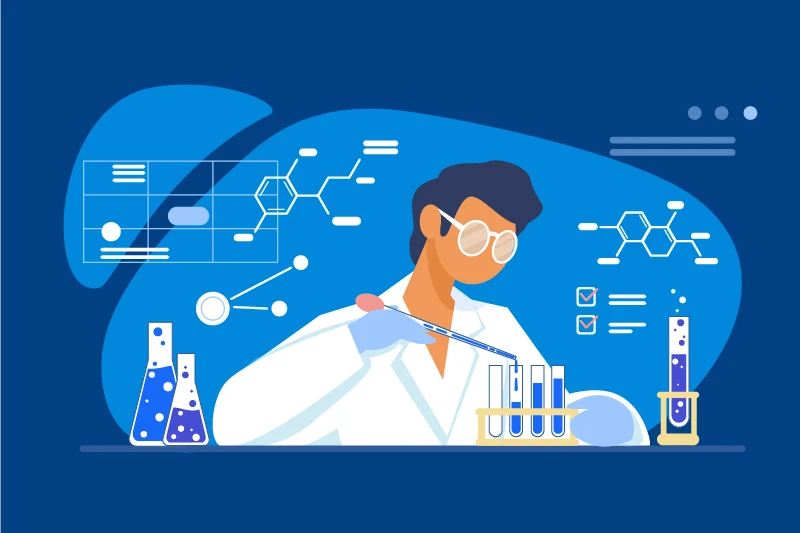








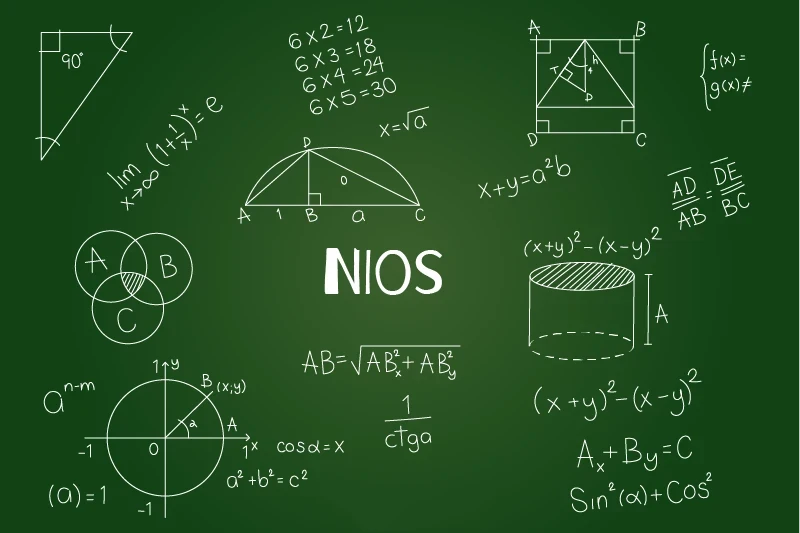






































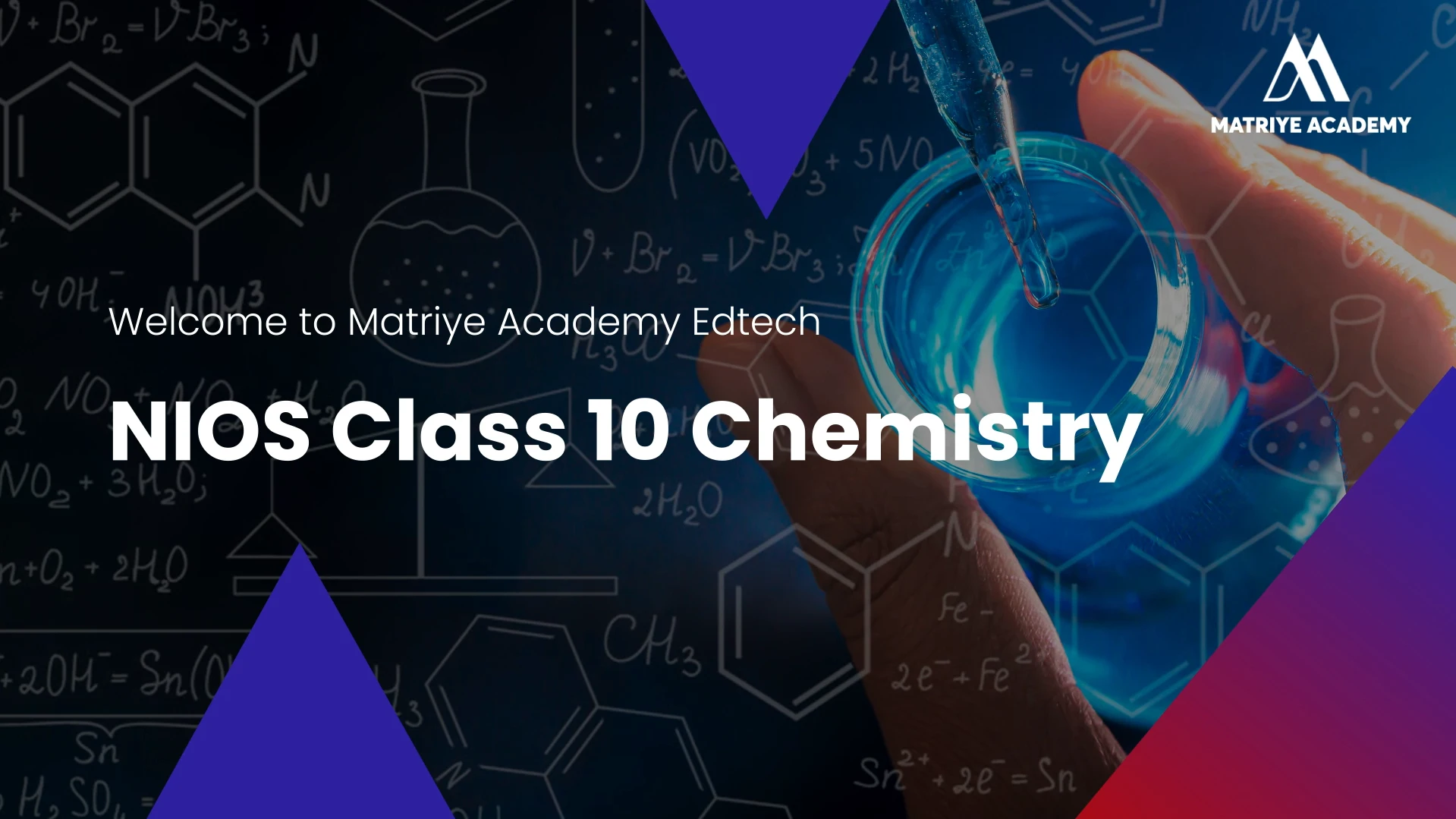
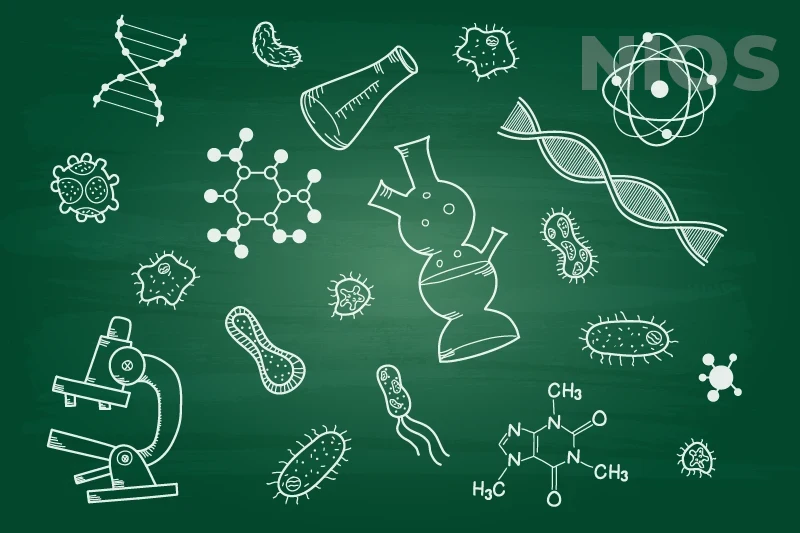


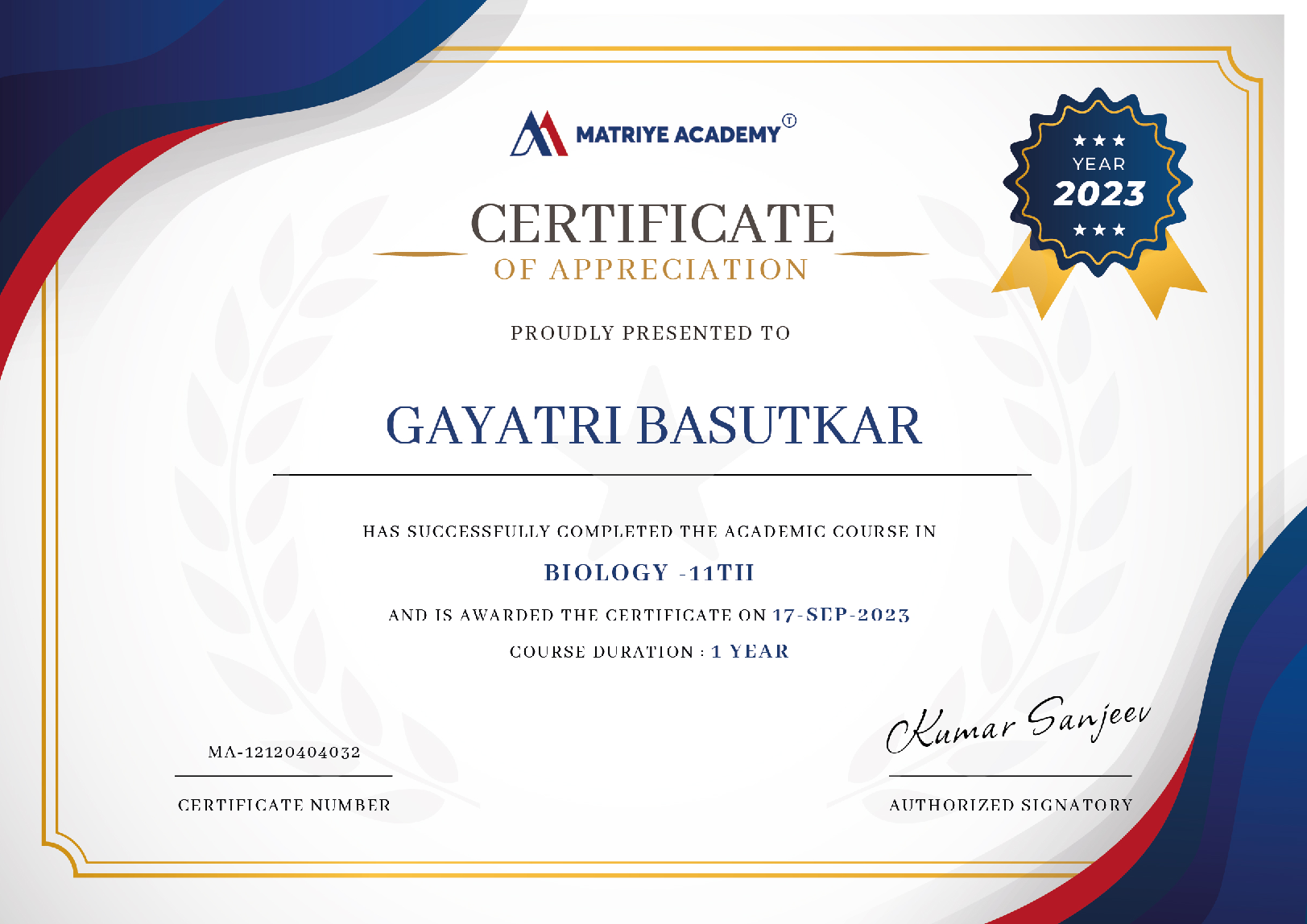
Leave A Comment